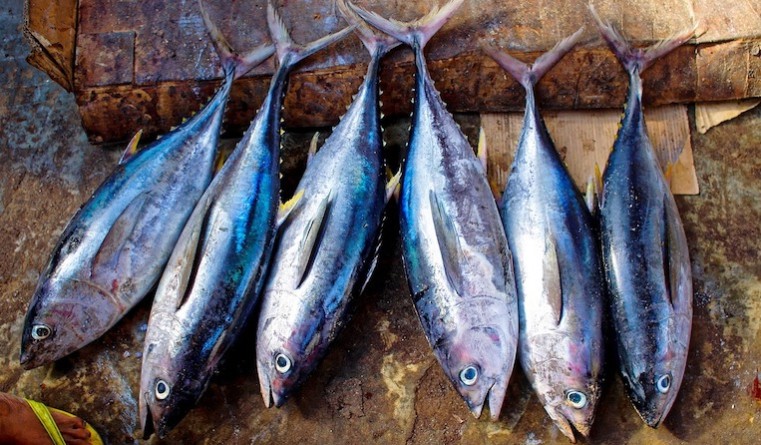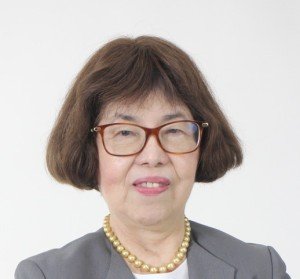The Doctrine of Equivalents
31 May 2024

In the case of Phillips Seafood Philippines Corporation v. Tuna Processors Inc. promulgated by the Philippines Supreme Court on February 6, 2023, but uploaded to its website only on March 7, 2024 (G.R. No. 214148), the Court had the occasion to reiterate the State’s policy that “the importance of patents as a tool for national development and economic advancement cannot be overemphasized. They ensure the flow of knowledge and information by encouraging inventors to disclose their discoveries to the public. In exchange, the inventors are given market exclusivity or the right to exclude others from making, using, offering for sale, selling or importing a product or a product obtained from a patented process. However, like any other intellectual property right, the exercise of this right is not without limitations. The extent of protection granted to patent holders is limited to the claims of their patent.” The provision in the IP Code supporting the two types of patent infringement – literal infringement and infringement by the doctrine of equivalents – is found in Section 75, which states that the claims are to be interpreted in the light of the description and drawings, and to determine the extent of protection due, account shall be taken of elements which are equivalent to the elements expressed in the claims, so that a claim shall be considered to cover not only all the elements as expressed but also equivalents. The case of Phillips is detailed as follows.
It’s been said that smoked tuna is a delicious and healthy dish. The Philippines is a top global producer of tuna and in 2022 tuna was the leading fishery product exported from the Philippines.
There are many ways to smoke tuna, and Kanemitsu Yamaoka developed a method for curing fish and meat, and was one of the patentees of Philippine Patent No. 1-3113811 entitled “Method for Curing Fish and Meat by Extra Low Temperature Smoking.” Yamaoka’s invention involves the process of curing tuna meat by exposing it to a filtered smoke cooled in a cooling unit to between 0° and 5°C while retaining ingredients exerting highly preservative and sterilizing effects. In 2003, having found out that one of its former employees had been hired by Phillips to build two smoke machines and had been using them since 1994, Yamaoka filed an administrative complaint for patent infringement against Phillips Seafood Philippines Corporation before the Bureau of Legal Affairs (BLA) of the Intellectual Property Office of the Philippines (IPOPHL). Phillips denied infringing Patent I-31138, and alleged that its process does not require a cooling unit because the filtered smoke is only allowed to cool to ambient temperature before it is injected directly into the tuna meat. Phillips questioned the validity of Patent I-3113811 as a defense and argued that the patented process does not involve an inventive step and that all the elements of Claim 1 already formed part of the prior art.
Issuance of temporary restraining order/preliminary injunction
During the summary hearing on the application for a temporary restraining order (TRO) and/or a preliminary injunction, as prayed for by Yamaoka in his complaint, Yamaoka presented his witness who testified on Phillips’ process and the existence of a cooling unit. The BLA conducted a subsequent ocular inspection and did not find evidence of said cooling unit, but still gave weight to the testimony of Yamaoka’s witness and issued the TRO and later the writ of preliminary injunction requiring Phillips to cease from using the patented process on its tuna products for 90 days.
Decision of the BLA
In 2006, after the trial in chief, the BLA dismissed Yamaoka’s complaint for patent infringement ruling that Phillips’ process lacked the key elements of Patent 1-31138, hence, no literal infringement, stating that Phillips’ process does not align with the specifications of Patent I-31138. Furthermore, the BLA held that there was no infringement under the doctrine of equivalents since Phillips’ process did not meet the function-means-and-result criteria, failing to perform substantially the same function or operate in a similar manner as the patented method, thus, the two processes could not achieve substantially the same result.
Decision of the Office of the Director General (ODG)
Dissatisfied with the BLA decision, Yamaoka appealed to the ODG asserting that Phillips’ process directly aligned with the claims of his patent and that the combination of steps in his patent claims was equivalent to Phillips’ process. The ODG, instead of constituting a panel of experts, sought expert opinion from Professor Teresita P. Acevedo of the University of the Philippines. Acevedo in her report concluded that there were significant differences between Phillips’ process and Patent I-31138 in the curing process for the meat, including variations in filtration process, smoke temperature and method of introduction, and concluded that the end products of the two processes were distinct. In 2009 Yamaoka died and was substituted by TPI. On September 12, 2011, the ODG dismissed Yamaoka’s appeal, finding no cogent reason to reverse and set aside the BLA’s decision, dismissing Yamaoka’s complaint for patent infringement.
Court of Appeals decision
TPI appealed the ODG’s decision to the Court of Appeals, maintaining that Phillips infringed TPI’s patent both literally and under the doctrine of equivalents. On June 25, 2013, the Court of Appeals dismissed TPI’s appeal and sustained the ODG’s decision that Phillips’ process does not infringe Patent I-31138. However, the Court of Appeals, in comparing both processes, found that they differ in the manner of applying the filtered smoke to the tuna meat. In Yamaoka’s process, the filtered smoke is pre-cooled to a temperature between 0° to 5°C., which is absent from Phillip’s process. The Court of Appeals further observed that the filtering step in Yamaoka’s process claims to “remove mainly tar therefrom”. On the other hand, Phillips’ filtering process aims to “remove tar and odor”. Since the filtering process employed by both parties are different, and TPI failed to show that the end product of both processes are the same, the Court of Appeals was left with no conclusion that they are different, citing also the expert opinion of Acevedo.
TPI moved for the reconsideration of the court’s decision arguing that the strict construction of the court of its claimed process “to remove mainly tar” to mean to remove “only” tar” is not correct, which error the Court of Appeals accepted. The court then ruled that the parties’ respective filtration processes are substantially the same in that both aim to remove tar and other impurities. Phillips, therefore, is liable for patent infringement under the doctrine of equivalents.
Decision of the Supreme Court
Phillips appealed the Court of Appeals’ decision to the Supreme Court and insisted that the Court of Appeals erred in finding it liable for infringing Patent 1-31138 under the doctrine of equivalents, that the court had misconstrued the phrase “to remove mainly tar therefrom” as embracing other impurities including odor, and even if the court’s construction of this phrase is correct, it is not sufficient to support the finding of infringement.
The Supreme Court agreed with the Court of Appeals’ interpretation of the phrase “to remove mainly tar therefrom” means that the objective and result of the filtering step is to remove impurities, but mainly tar, and that the term “mainly” should not be equated to “only”, but that this is insufficient to support TPI’s claim of infringement. To resolve this issue, the Supreme Courrt compared Yamaoka’s claims against the process of Phillips, to wit:
|
PATENT 1-3113811 |
PHILLIP’S PROCESS |
|
1. Burning sawdust at 250° to 400°C; |
|
2. Filtering of the produced smoke to remove tar, odor and other impurities; |
|
3.Cooling of the filtered smoke at an ambient temperature; |
|
4. Smoking of tuna meat by exposing it to the filtered smoke cooled to between 0° and 5°C. |
4. Exposing the frozen tuna meat to the filtered smoke by smoking and injection of the filtered smoke directly into the tuna meat. |
|
5.Cooling of tuna meat injected with ambient temperature filtered smoke to 4°C to S°C before the ocular inspection or -3°C during the ocular inspection. |
The Supreme Court observed that the first two steps in Phillips’ process can be read in Patent I-31138's Claim 1. However, subsequent steps in Phillips’ process differ from the last two steps in Patent 1-31138. The elements of cooling the filtered smoke to 0° and 5°C in a cooling unit before applying it to the tuna meat are absent. Therefore, Phillips’ process does not fall within the literal meaning of Patent I-31138’s Claim 1, and affirmed the Court of Appeals’ ruling that there is no literal infringement.
On the application of the doctrine of equivalents test, prior to the promulgation of the IP Code in 1998, the courts gave weight to U.S. cases where the U.S. Supreme Court introduced the all elements test in determining equivalence. Under this test, courts consider the individual elements in a patent claim to define the scope of the patented invention, rather than considering the invention as a whole. The all elements test was developed to avoid the possibility that courts will enlarge the scope of a patent when applied too broadly to the invention as a whole as to eliminate an element in its entirety.
The Philippines Supreme Court has not yet applied the all elements test, but the IP Code states that in determining the extent of protection conferred by a patent, elements in the allegedly infringing device or process which are equivalent to the elements expressed in the claims should also be considered. This means that Philippine laws and jurisprudence recognize the insubstantial difference test, triple identity test and all elements test in determining equivalence under the doctrine of equivalents. The examination of Phillips’ process vis-à-vis Patent I-31138’s elements shows that the all elements test was not satisfied. The equivalents of all the elements in Patent I-31138 are not present in the Phillips process. The first two steps in Phillips’ process and the two elements in Claim 1 of Patent I-31138 are identical. As regards the last two elements, TPI’s evidence is insufficient to establish that the eventual cooling of the ambient temperature filtered smoke retained the ingredients which exert the same highly preservative and sterilizing effects. Similarly, there is no evidence proving that the ambient temperature filtered smoke cures the tuna meat in the same way as when the tuna meat is exposed to a filtered smoke already cooled to between 0° and 5°C. Thus, the last two elements of Patent I-31138 are not equivalent to the simultaneous cooling of the ambient temperature filtered smoke and tuna meat. In all, TPI and its predecessors-in-interest failed to discharge their burden of proving that Phillips appropriated the innovative concept of Patent I-31138. The evidence on record is insufficient to establish that Phillips’ process cures the tuna meat in substantially the same way as Patent I-31138. The Supreme Court ruled that there is also no infringement by the doctrine of equivalents, granting Phillips petition for review.








